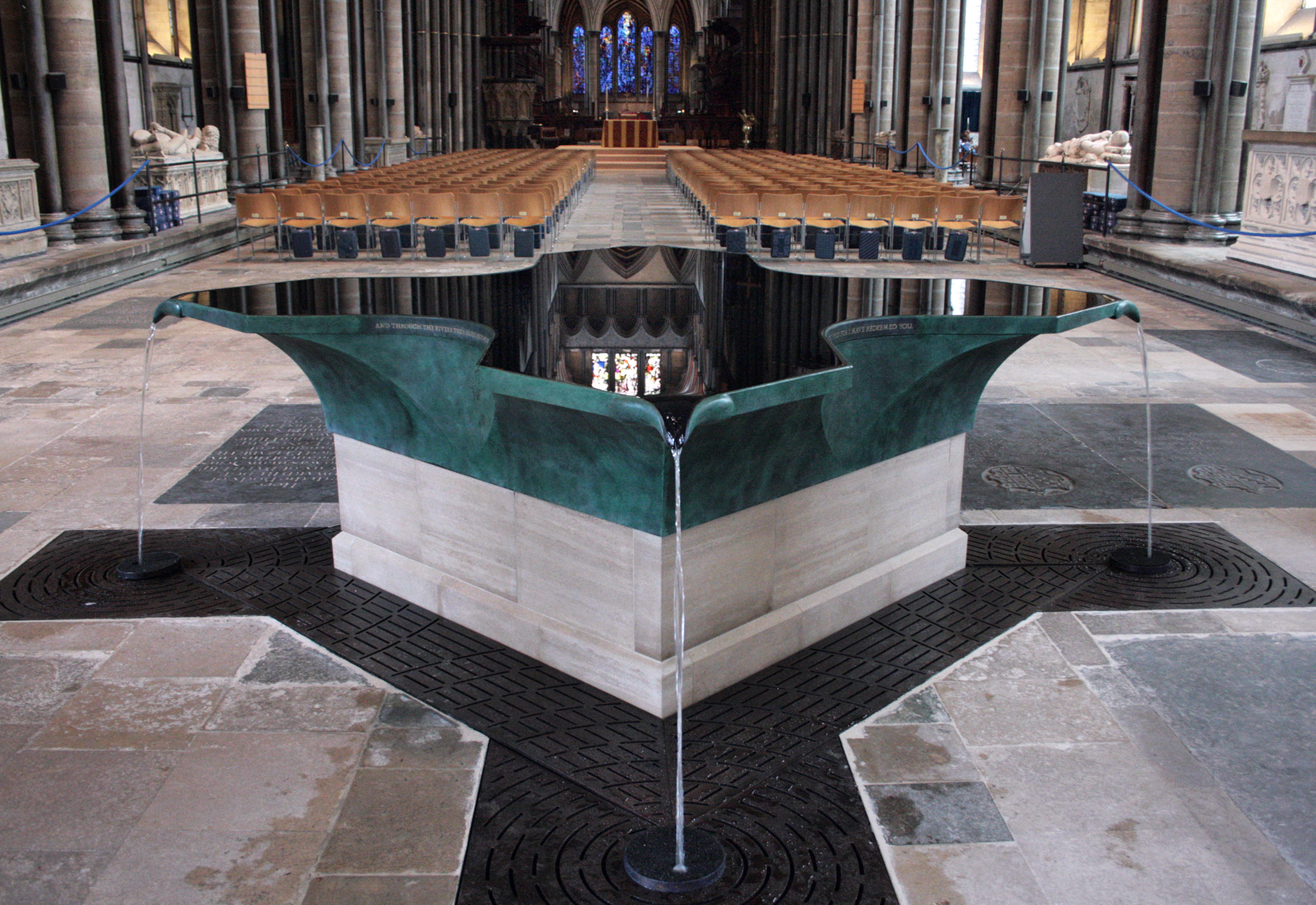21st November 2021
The truth about power

A sermon preached by Canon Robert Titley, Treasurer
Sunday 21 November 2021, 16.30, The Feast of Christ the King
Readings Daniel 5 John 6.1-15
Please scroll to the bottom of the page to follow a video of this sermon
An adult drink, best served cold. A colourful item of sportswear. An era-defining singer. The one thing these three have in common is that each attracts the title of ‘King’: Budweiser, ‘King of Beers’ (according to the advert); the red polka dot cycling jersey worn in the Tour de France by the ‘King of the Mountains’; and Elvis Presley – simply ‘the King’.
None of them has any literal connection with crowned heads of state, but we don’t notice that, because this is a verbal trick we pull every day, describing a thing in terms of something else. For instance, this evening, if you get home and realise you can’t remember a word of this sermon, you may say that you were ‘miles away’ at the time; even though you never left your seat.
So, with our three ‘kings’, the only debate is whether the title fits. Does the thing or person measure up? Are they really the best in their field? In the case of the winner of the mountain section of a bike race, there is no debate; and, in the case of the singer, not much debate (certainly not in the minds of my Elvis-loving colleagues here). In the case of the beer, the royal title is – let us say – contested.
And then there is Jesus. Christ the King. How does he measure up?
‘Christ’ is the title most frequently applied to Jesus of Nazareth, and it is a royal title: ‘Christos’ in Greek, ‘Messiah’ in Hebrew, means ‘Anointed’, and anointing is the act that makes kings in Israel (as it does here in the United Kingdom). But Jesus doesn’t want to be king, that’s what our second reading implies: when he thinks they are about to make him king he heads for the hills.
John’s gospel will go on to describe how the title is finally forced on him. It’s on the sign above his head when the Romans put him to death on the cross: ‘King of the Jews’ – an ironic visual aid for anyone who may have the idea that there can be any king but Caesar.
No wonder the critic Terry Eagleton calls Jesus ‘a joke of a Messiah…a carnivalesque parody of a leader’. He calls him this not to dismiss him. Rather, he sees in Jesus the one who deconstructs all that kingly power stands for. The crucifixion of Jesus shows where absolute power, the power of Belshazzar and Caesar, leads in the end: to the torture of goodness and the killing of love – or so it seems.
Like the writing on the wall at Belshazzar’s feast, the death of Jesus, this act of humiliation and pain, reveals the truth of things. What Jesus then offers is the promise of a transformation of what the kings of the earth wreak upon the earth. This is what his followers experience as the resurrection.
The Feast of Christ the King is a fairly late arrival at the party of Christian faith. Pope Pius XI instituted it in 1925, as Mussolini was turning Italy into a police state and authoritarian strongmen were back in fashion elsewhere, to remind the faithful where their final allegiance should lie. Survey the scenery of leadership in our world and you may conclude that this is a feast we still need in our diet.
Now, next weekend brings the beginning of a new Christian year with Advent, a season of longing for our abused and fragile world to be transformed, and ourselves within it. One of the great Advent prayers calls on Jesus as our King, though it pictures him as an unlikely monarch whose hands are dirty with the stuff of creation,
O King of the nations, and their desire,
the cornerstone making both one,
Come and save the human race,
which you fashioned from clay.
Here is a sonnet by Malcolm Guite, inspired by that Advent prayer to this most strange of kings, the head of state who has nowhere to lay his head.
O King of our desire whom we despise,
King of the nations never on the throne,
Unfound foundation, cast-off cornerstone,
Rejected joiner, making many one,
You have no form or beauty for our eyes,
A King who comes to give away his crown,
A King within our rags of flesh and bone.
We pierce the flesh that pierces our disguise,
For we ourselves are found in you alone.
Come to us now and find in us your throne,
O King within the child within the clay,
O hidden King who shapes us in the play
Of all creation. Shape us for the day
Your coming Kingdom comes into its own.
‘O Rex Gentium’, Malcolm Guite, from Sounding the Seasons




